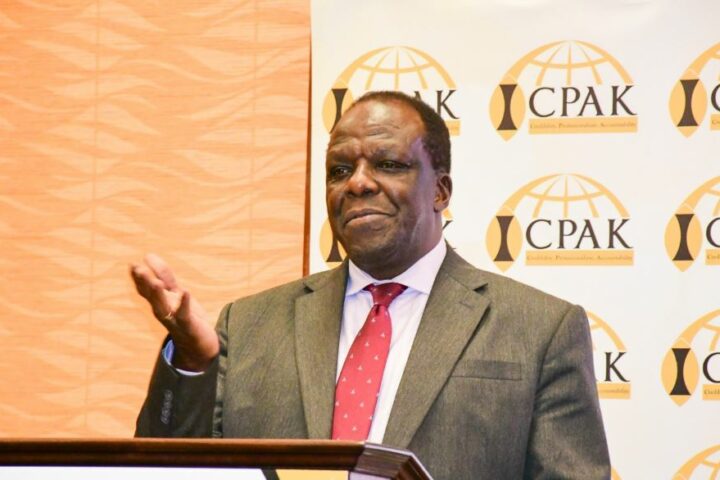Julie Gichuru is best known for being a TV news anchor and group digital business manager at Kenyan media company Royal Media Services. Beyond the glitz and glamour of TV, Gichuru is also a successful entrepreneur, running an online fashion store called Mimi and production company Arimus Media. She has been recognised as one of Africa’s most influential women. Gichuru told How we made it in Africa’s Dinfin Mulupi more about her business ventures.
What inspired you to go into business?
Africa is undergoing an incredible transformation; I would describe it as the new wind of change sweeping across the continent. While there are many challenges, there are also plenty of opportunities and I do feel it is our responsibility to identify those opportunities and create and build profitable businesses that provide employment opportunities and grow tax revenues. If we as Africans don’t do it then we will find ourselves on the periphery of our own growing economies, as others leverage these opportunities.
Last year you launched online fashion shop Mimi. How is the business performing?
Mimi.co.ke was a very pleasant surprise. As a TV anchor I was struggling to find affordable, quality, trendy clothing. Several suppliers reached out to me and I decided to take it to the next level by setting up the business in partnership with my husband Anthony Gichuru. The next step was sales; we looked into shops and found limited space in big malls and exorbitant prices on available space. Tony and I considered the option of going online and decided to give it a go. The look and feel of the site was important and we opted for simplicity. It took a couple of days before orders started coming in. Our challenge now is to move into other markets in the region.
Tell us more about the lessons you have learnt in business.
There are so many but I think everything boils down to connection, communication and relationships; with clients, with partners and with staff.
Describe the challenges you face as an entrepreneur.
Access to funds is always a huge challenge, managing costs is vital and the human element is just as important. Anyone going into entrepreneurship should understand there will be sleepless nights, lots of nail biting, and a struggle balancing the books. It is not easy.
Although a lot of women in Africa are going into business, very few manage to build large successful companies. What is lacking?
I think there are several challenges facing women. First and foremost, most women often don’t have access to funds. Many women are encouraged to think micro, limiting their ability to grow. It also takes great courage and fortitude to invest fully into a large business. Many women are helping to support their families and bring up children, which could be a significant factor. With more financial information and access to funds, women can transform their businesses from small survival or subsistence outfits to larger, more profitable businesses. I do think role models help and there are some powerful role models out there. In Kenya we have Tabitha Karanja of Keroche Breweries, Eva Muraya of Colour Creations and many others.
The African youth are being encouraged to go into business and become job creators. But is entrepreneurship really for all?
No, I would not say it is for everyone but it is certainly a start and a great teacher. If you are jobless and live with your parents, even with a small patch you could grow and sell something. You could organise the youth in the area and collect garbage for a fee. It is far better to be busy doing something, gaining experience and a few shillings, than it is to do nothing. It also counts for something when being considered for a job. While some may try and not succeed, it is the effort and the learning that is important.
What is your advice to aspiring entrepreneurs?
Five things; do your research, invest in areas where you have expertise, take one step at a time, manage your costs and grow your networks.
What are your future plans for your businesses?
For Arimus Media it is my hope and dream that our content will not just be watched in Africa but will be lauded globally. We intend to provide markets with quality African content, telling an authentic African story and changing perceptions about Africa globally. With respect to mimi.co.ke, our first step is to fully penetrate the East African market and then look beyond, across Africa.
There is currently a lot of optimism about the prospects of Africa. Do you believe it really is Africa’s time?
I do believe it is Africa’s time and I see the growth and the opportunities. My greatest fear is that Africans will not benefit if they do not stand up and take charge of their destiny by starting strong indigenous African companies and brands. My greatest hope is that we can have the courage and vision to seize the moment and create a new narrative for Africa.
Source – How we made it in Africa
Follow @nairobiwire






